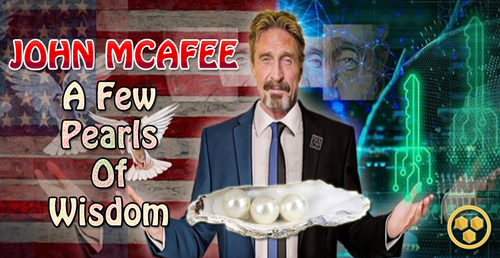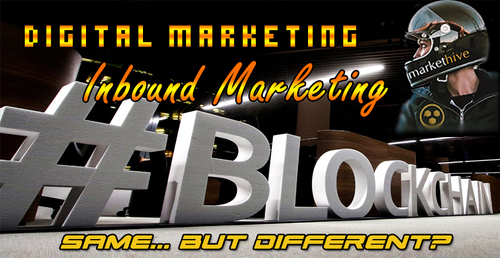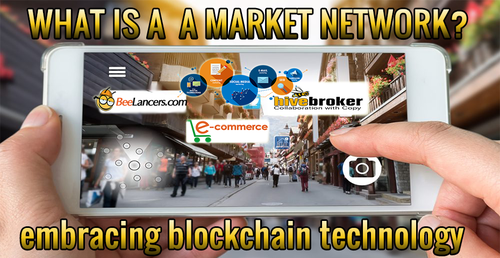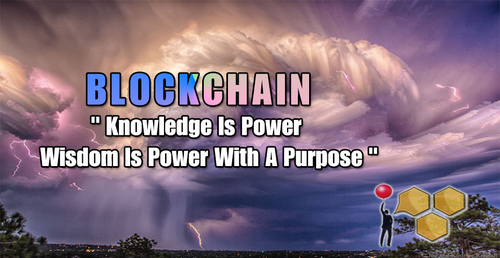
The Reality Of Multi-Level Marketing

Over the past few days, I’ve been doing some intensive research about Multi-Level Marketing (MLM) Companies and the people they seem to attract. During my research, I have found there are opposing views to the extreme on the subject which makes it a difficult topic to discuss. There are some who are passionate about it with well-known celebrities advocating, to the point of being an ambassador for a company. [If they are in it, it must be good!] And on the other hand, if you admit you are in an MLM company people will run a mile and avoid you like the plague.
There are some reputable MLM companies out there because they focus on the product more than the pyramid structure of recruiting. However, the problem with many multi-level marketing companies and the reason the industry has such a bad reputation is that they make it intentionally complicated, vague on important details and the overhype which gives the recruitee unrealistic expectations.
It’s also difficult to establish whether or not the company is built around the consumption of the actual product or the premise that you need to bring in more people under you to succeed. If you scan the internet you will find dozens of negative articles such as “What’s Wrong With Multi-Level Marketing?” and very few articles in favor of them.
Reputable Studies On Multi-Level Marketing
About one in thirteen people of 18 years plus have participated in at least one MLM company according to the AARP Foundation. But do these people really make money or even a modest living at multi-level marketing? What is the actual likelihood of success?
The AARP Foundation did a study that explores the mindset, expectations, and experiences of MLM associates. The results can be found in this report titled “Multi-level Marketing: The Research, Risks, and Rewards.” The study points out that while it’s possible to achieve some success with an MLM organization, it’s not common.
The study found that 44% of associates dropped out after less than one year. Another study conducted by Jon M. Taylor, Ph.D., founder of the Consumer Awareness Insitute goes into a little more depth on dropout rates:
- A minimum of 50% of MLM representatives drops out in the first year.
- A minimum of 90% of representatives leaves within five years.
- By year 10, only those at or near the top have not dropped out—which means at least 95% of representatives have dropped out.
Notably, around two-thirds of the associates in the AARP Foundation’s study said they would not join the same MLM company after knowing what they know now.
How likely are you to be able to make money in MLM?
The fees and money for products that need to be invested or outlaid by associates to be able to participate and/or keep their status within an MLM company have run into the thousands. Notably, a very high percentage of people have never recouped their expenses and in reality, only a tiny percentage of representatives actually succeed in making the high earnings promoted by some companies. Some don’t make money at all and some, unfortunately, lose money.
The AARP Foundation study showed that only around 25% made a profit with MLM, 27% broke even and about half of them lost money. Of the 25% that made a profit:
- 14% made less than $5,000
- 6% made between $5,000 and $9,999
- 3% made between $10,000 and $24,999
- 3% made $25,000 or more
- .05% made $100,000 or more
Interestingly, the ARRP Foundation found that 52% of MLM associates said the company’s representation of achieving financial success was “not too accurate” or “not at all accurate”. Taylor produced a staggering conclusion from his research saying that
“On average, one in 545 is likely to have profited after subtracting expenses, and 997 out of 1,000 individuals involved with an MLM lose money (not including time invested)”
In this video, John Oliver, the comedic host of Last Week Tonight, gives a passionate and satirical presentation about certain MLM companies in light of the events regarding Herbalife and the Hispanic community that was burned by Herbalife as portrayed in the movie documentary “Betting On Zero”.
Who Do You Trust?
There are some well-known MLM companies that are product-centric. The recruiting component is secondary. The company gets most of its revenue from products or services, not new customers. This means they have compensation plans designed around the product sales at which you are more likely to generate a substantial income on the products alone and not be reliant on the number of recruits or their sales. Additionally, they have a large customer base that are not distributors of the company.
Before joining an MLM company, it’s crucial to research the company and products thoroughly. Be sure the products are something you believe in and trust. It’s hard to promote something you don’t believe in. I would go so far as to say love and use the product and above all love what you do. It’s a well known saying, “If you love what you do, the money will follow.” Ok, well… It sure beats doing something you don’t like.

When a company or its representatives display grandiose tactics and hype over the premise of making big money especially with very little effort, it’s a red flag. It seems to me that since the dawn of the internet there are many more MLM’s and money-making programs promising this, which has bred a culture of laziness and desperate people expecting big things in return for little or no work.
Referral Companies – Loyalty Programs – A Win/Win
Referral companies seem to have the secret sauce when it comes to market growth and sustainability, and it’s not at the risk of pyramidical saturation or loss of financial outlay. Companies that have referral programs use cost-effective marketing strategies by rewarding existing customers or associates to spread the word about the company and its products. By the same token, new customers are rewarded for joining. This can be in the form of cash, discounts, redeemable points, subscriptions and now in the new era of blockchain, we have cryptocurrency, airdrops, and faucets.
Successful Companies That Have Championed Referral Programs

PayPal – They literally gave away free money. Referrals helped Paypal achieve up to 10% daily growth increasing their user base to over 100 million members. The company dropped the refer-a-friend bonus upon reaching a critical mass of early adopters but kept the merchant bonus until they reached their target numbers.

Dropbox – Modelled after PayPal, Dropbox’s referral program, they added a double-sided referral program, where both referrer and friend were rewarded. They permanently increased signups by 60%. The referral rewards were extra storage space which was key to usage and enjoyment of their product.

Airbnb – In 2011, 3 years after its initial launch, Airbnb first tested the new referral program in a hugely successful closed-beta program of 2,161 existing members, which brought in 2,107 new members, nearly a 1:1 ratio. It has since seen remarkable growth especially with loyal advocates like the very enthusiastic single user in China led to thousands of signups and hundreds of bookings in a single month.

Uber – Uber has run multiple referral programs at once, for both passengers and for drivers – and set the benchmark for future ride-hailing apps. Uber has covered more than 50 countries in 3 years. With a referrer’s Invite link and a clear call to action to refer friends makes it easy and simple. The bar at the bottom of the image is a clever piece of gamification. Let’s face it, people love games and who doesn’t want to fill up progress bars?

Evernote – Their referral program relies on a point system and has a dual-sided referral incentive program that either gives people additional space or premium membership. Notably, the clarity of what constitutes a referral is clearly defined. Once the referral has signed up, they must also sign in. Their Cloud Notebook has been extremely popular, acquiring their first million users in 14 months and hitting 11 million users two years later.

Markethive – Being the first Social Market Network on the blockchain with its own crypto coin (MHV) and exchange is leading the way with cryptocurrency referral incentives and loyalty programs. MHV is an open-source digital value transaction technology that can be made accessible to cryptocurrency exchanges as well as used for transactions between Markethive’s Market Network participants, and to pay for products and services, etc.
Currently, still in beta, the active user base has gone from 4,000 to 56,000 in a few short months entirely by word of mouth and growing exponentially. In less than a year Markethive has grown from obscurity to rank in the top 5 of companies in the blockchain media companies with an Alexa ranking of 11,500 as of Nov 2019. Markethive rewards active members with airdrops and faucet like payments, and members that upgrade with ILP holding options. New referrals receive 500 MHV coins upon joining. This is an evergreen referral program with loyalty rewards, gamification, and competitions built into the ecosystem making it a fun, lucrative and rewarding platform for all subscribers.
Conclusion
Once upon a time, before the internet, the only avenue available was MLM opportunities for the average person with no experience to give it their best shot and try to make an income or at least supplement their wage.
For the last 25 years, we’ve had the internet where so many more opportunities popped up, good and bad. The trick is to identify and be wary of scams with buzz words like “get rich quick”, “fire your boss” and “no effort required”. There are many unscrupulous individuals and companies sadly, that prey on desperate, naive people who dream of becoming successful online and securing financial freedom.
Coming to the fore we now have blockchain technology which allows a more level playing field providing transparency, privacy, autonomy and equality with more opportunity to reach self-sovereignty. Coupled with honorable companies and noble individuals at the helm who integrate, utilize and pass on the benefits of this decentralized technology is a real win/win in my book. I believe it’s definitely getting harder for the scam artists out there. The end is nigh, people are waking up.
Are you one of the 97% who lost money in MLM? Can you see the magnanimity of the blockchain era and how it can affect us all very positively?

Deb Williams
A Crypto/Blockchain enthusiast and a strong advocate for technology, progress, and freedom of speech. I embrace "change" with a passion and my purpose in life is to help people understand, accept and move forward with enthusiasm to achieve their goals.
David https://markethive.com/david-ogden




































.png)












